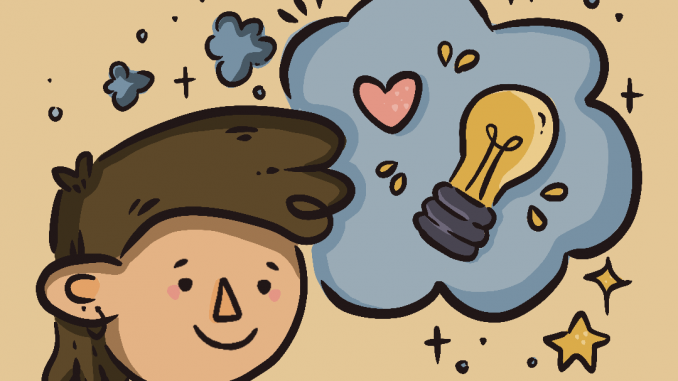
It is not uncommon for students to come to college and be challenged to become more open-minded as time goes on.
“Overall I would say I learned the importance of learning how others think and where they have come from,” wrote Masha Root, a senior psychology major, in an email to The Temple News.
Unlearning is when a person breaks down and examines their preconceived beliefs and biases, according to Psychology Today.
For Temple University students, unlearning is part of being in college as campuses are home to a diverse range of beliefs that expose students to an expanded worldview, said Dustin Kidd, director of the Intellectual Heritage department.
Students read more during college than they will after graduation, which means they are actively surrounding themselves with new ideas more than they would on their own, Kidd added.
“There’s a real push to surround yourself with lots of different ideas and be empathetic to a wide range of perspectives,” Kidd said. “And so that leads to what we might call a progressive approach to ideas. Now that’s not the same as politically left-leaning, but being progressive in terms of thinking about things like racial diversity and ideas and ideology, think about gender and sexuality and the identities connected to gender and sexuality.”
Rachael Groner, director of the first-year writing program, said one of the goals of the program is to increase critical thinking skills. Almost every first-year student at Temple University takes one of the program’s courses, and Groner has seen thousands of students start their journey toward more open-minded thinking.
“That’s part of why [students come to college],” Groner said. “They want to open their minds a little bit and think about gender and race and sexuality in a more open, broad way.”
Groner said students in recent years are coming to college with more distinct and developed political views and may have to unlearn or deepen their understanding of some ideologies.
“It can be really good that they know what’s going on because that’s a good starting place for us,” Groner said. “When I first started teaching, I’m not sure students had that developed awareness of the world around them.”
Kidd stressed the importance of students learning and growing while not giving up their own unique point of view.
“It’s important to us that the experience that the student brings into the classroom, their own personal experience, is always valued within our classes,” Kidd said. “So it’s not about unlearning their own personal experience but building on that by learning about other perspectives and other experiences.”
For Isabel Hessler, a junior art major, unlearning has been about recognizing that politics are more complex than they once seemed.
Growing up in a liberal household, the idea of democracy was ingrained in her from a young age, but once she got into college Hessler learned about and participated in social movements.
“I became more and more radical … a big part of that unlearning was realizing how intricate and organized systems of oppression are and where my privilege lies in those systems, which parts I benefit from and which parts marginalize me,” Hessler wrote in an email to The Temple News.
Unlearning is not a one-time event but an ongoing process, Hessler wrote.
“It’s been an amazing and really emotional learning experience and I don’t think I’ll ever stop unlearning,” she added.


Be the first to comment